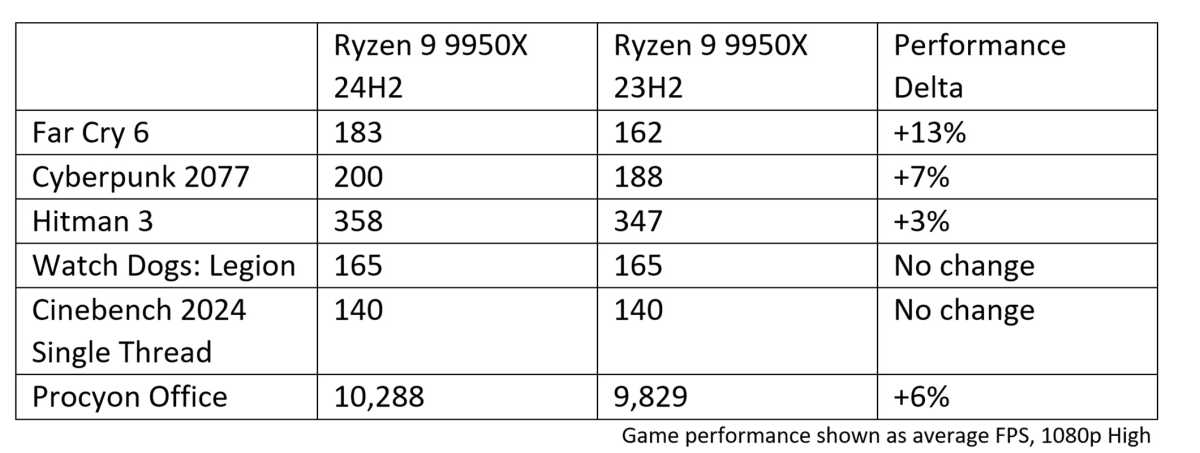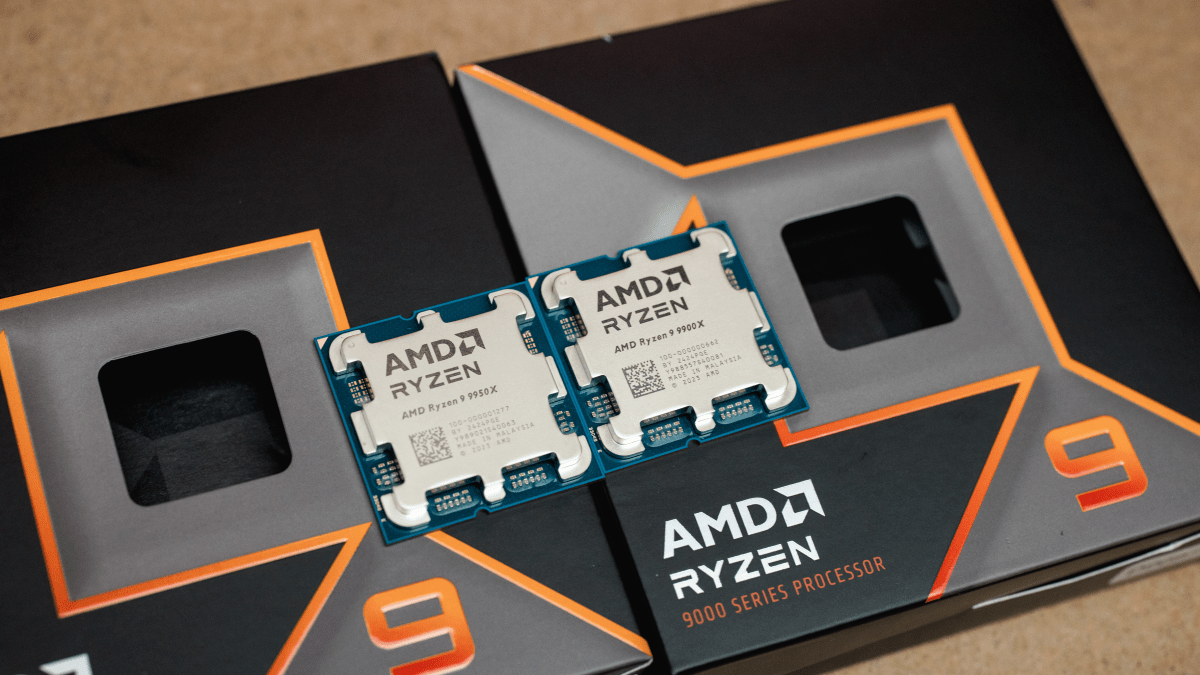
The recent launch of AMD’s desktop Ryzen 9000 family of processors was a bit of a mess, and AMD officially admits it — along with providing new, optimized code that improves overall performance.
The new code, which is optimized for improved branch prediction performance, should deliver gains of between 0 to 13 percent depending on the application, AMD says. It will also benefit older Ryzen chips (albeit by a smaller amount).
Furthermore, the new code won’t be distributed via PC makers or BIOS updates, but as a Windows 11 beta preview.
What’s in AMD’s Ryzen 9000 patch?
As soon as the new code is applied, gaming performance should improve. However, AMD appears to be playing it somewhat cautiously, and there are still unanswered questions.
As of now, Windows 11 users can only download and apply the updated code via the Windows Insider Program Release Preview Channel (Build 26100). It isn’t clear when the code will be made available to the general public, and AMD is quiet on when Windows 10 users will get it.
AMD hasn’t yet released any statements about how the patch will affect power consumption or battery life. And while the updated code is supposed to improve performance on older Zen 4 and Zen 3 processors, AMD isn’t saying by how much.
“Microsoft has committed to bringing these optimizations to Windows 11,” an AMD representative wrote in an email. “We’re in discussions with them about backporting them to Windows 10, but there’s no set timeline for that yet.”
What AMD is doing, however, is releasing specific application improvements that company engineers have tested. The games tested include Far Cry 6 and Cyberpunk 2077, which show the most improvement (up to 13 percent better performance).

AMD
AMD calls the optimized branch prediction code update an “iterative evolution” rather than a bug fix. When it was applied to both AMD’s Ryzen 9000 and Intel’s latest Core chips — and when Intel’s chips were given the benefit of the more aggressive memory speeds, extreme power delivery, and optimized settings — AMD said it believes the Ryzen 9000 family demonstrates a “double-digit” lead in productivity and creator applications, a 30 percent lead in AI applications, and “parity in gaming used in the most popular games” in the existing reviews.
Subpar Ryzen 9000 CPUs, recapped
This hasn’t been an easy year for any of the top three PC processor makers. Intel has battled ongoing problems with its 13th- and 14th-gen Core chips with a voltage bug causing crashes and BSODs. Qualcomm has largely impressed with its Snapdragon X Elite chips, but intensive workloads chew through battery life and they still have lingering compatibility issues.
And then there’s AMD, whose recent transition to the Zen 5 architecture was accompanied by rather aggressive performance claims at a July tech event — claims that failed to be backed up by real-world performance, according to many reviewers.

Willis Lai
“[W]hile ‘Zen 5’ is delivering leadership performance across content creation, productivity, and AI applications, we’ve heard from the community that they, with good reason, expected even more gaming performance from Ryzen 9000 Series than initial reviews show,” AMD said in a community blog post.
And that’s certainly true. PCWorld’s own Ryzen 9000 review showed impressive single-core performance gains, but the chip’s multi-core and gaming benchmarks didn’t quite deliver on AMD’s promises. Why? According to AMD, it’s complicated.
AMD: Why reviewers missed what we did
To its credit, AMD allowed reviewers to pick and choose what games to test and gave reviewers the freedom to decide how comparative systems from AMD and Intel could be configured.
